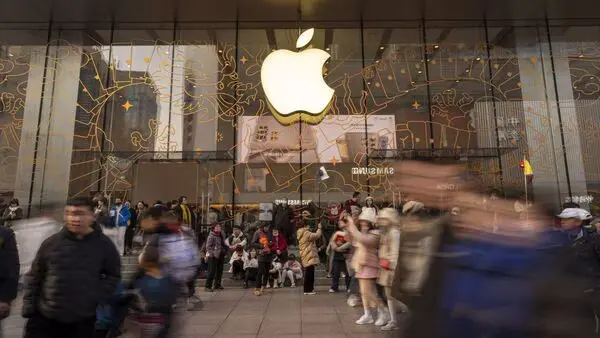In a significant development, tech giant Apple has reached a $490 million settlement in a class-action lawsuit that accused CEO Tim Cook of withholding crucial information about declining iPhone demand from shareholders. The lawsuit alleged that Cook’s actions amounted to defrauding investors by concealing the impact of weakening iPhone sales, particularly in China.

Legal Battle Unfolds
The agreement, which awaits approval from U.S. District Judge Yvonne Gonzalez Rogers, was filed on Friday in Oakland, California. The legal battle traces back to January 2, 2019, when Apple startled markets with an announcement of slashing its quarterly revenue projection by up to $9 billion, attributing it to escalating trade tensions between the U.S. and China.
CEO’s Remarks Under Scrutiny
At the heart of the lawsuit were Cook’s statements during an analyst call on November 1, 2018, where he reassured investors about Apple’s resilience in the face of challenges in various markets but notably excluded China from concerns. However, shortly after this call, Apple informed its suppliers to scale back production, hinting at the severity of the situation.
Apple Market Fallout
This marked Apple’s first downward revision in revenue since the inception of the iPhone in 2007, leading to a sharp 10% drop in its share price the following day, erasing a staggering $74 billion in market value.
Settlement Reached
While Apple has denied any wrongdoing, it opted to settle the case to avoid protracted litigation costs and disruptions, according to court documents. Shawn Williams, representing the shareholders, hailed the settlement as a significant win for the affected investors.
Impact on Investors
The settlement encompasses investors who purchased Apple shares in the two months between Cook’s optimistic remarks and the subsequent revenue forecast adjustment. Despite the substantial payout, Apple’s financial stature remains robust, with the settlement amount roughly equivalent to just under two days of its net income, which totaled $97 billion in the latest fiscal year.
Legal Standing
In a previous ruling last June, Judge Rogers rejected Apple’s attempt to dismiss the lawsuit, emphasizing the plausibility of the claim that Cook was aware of the impending decline in demand. The lead plaintiff in the case is the Norfolk County Council, representing the Norfolk Pension Fund based in England.
Market Implications
With Apple’s share price soaring to unprecedented heights, now exceeding a $2.6 trillion market capitalization, the resolution of this lawsuit marks a significant chapter in the company’s financial history.
Conclusion
The settlement underscores the importance of transparency and accountability in corporate governance, particularly in the technology sector, where market dynamics can swiftly impact investor sentiment. For now, Apple’s focus will likely shift towards maintaining its market dominance while ensuring transparent communication with shareholders to prevent similar disputes in the future.